Ukraine faces ‘humanitarian catastrophe’ as conflict hinders aid response
Major aid agencies have suspended operations due to Russia’s worsening onslaught and fear for the lives of millions of Ukrainians desperately in need of food, water and shelter, reports Kieran Guilbert

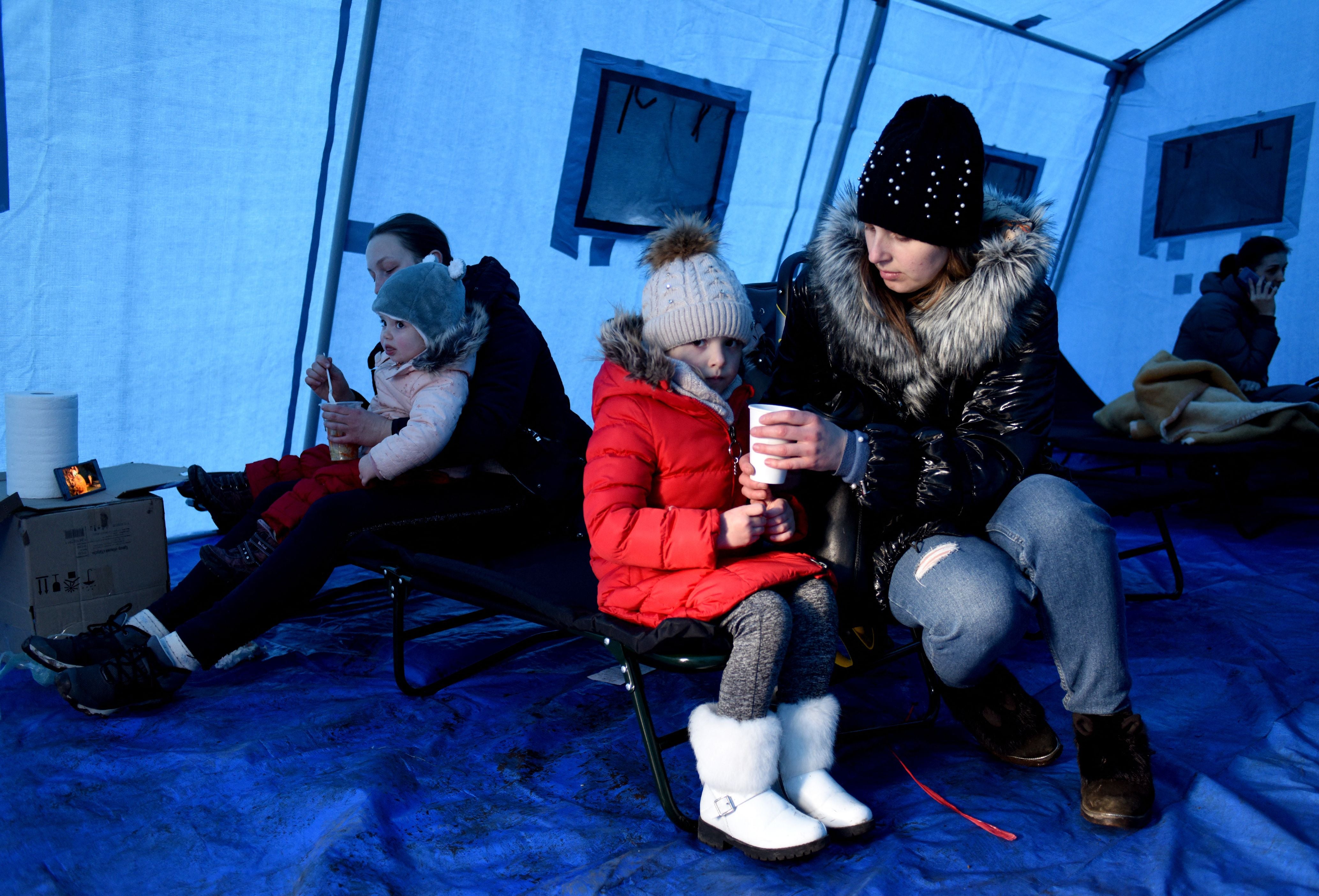
Ukraine is facing a “humanitarian catastrophe” following Russia’s invasion, with millions of people in urgent need of food, water and shelter during a conflict that has damaged countless homes and health facilities and hugely restricted the work of international aid organisations.
Hundreds of thousands of people have been forced to flee their homes since Thursday - at least half-a-million have crossed the borders into neighbouring countries such as Poland and Hungary - while damage to roads, bridges and infrastructure has left communities across Ukraine without electricity and water or access to essential services and humanitarian assistance.
About 18 million people have been affected by the conflict in the country of 44 million, the International Federation of Red Cross and Red Crescent Societies (IFRC) says, while the UN has warned that the crisis could trigger a refugee crisis with as many as five million people displaced.
“There is the potential for catastrophic scenarios in the days and weeks ahead,” said Andreas von Weissenberg, head of the IFRC’s health, disasters, climate and crises unit for Europe.
“This will be a game changer for the Europe region in terms of the humanitarian landscape.”
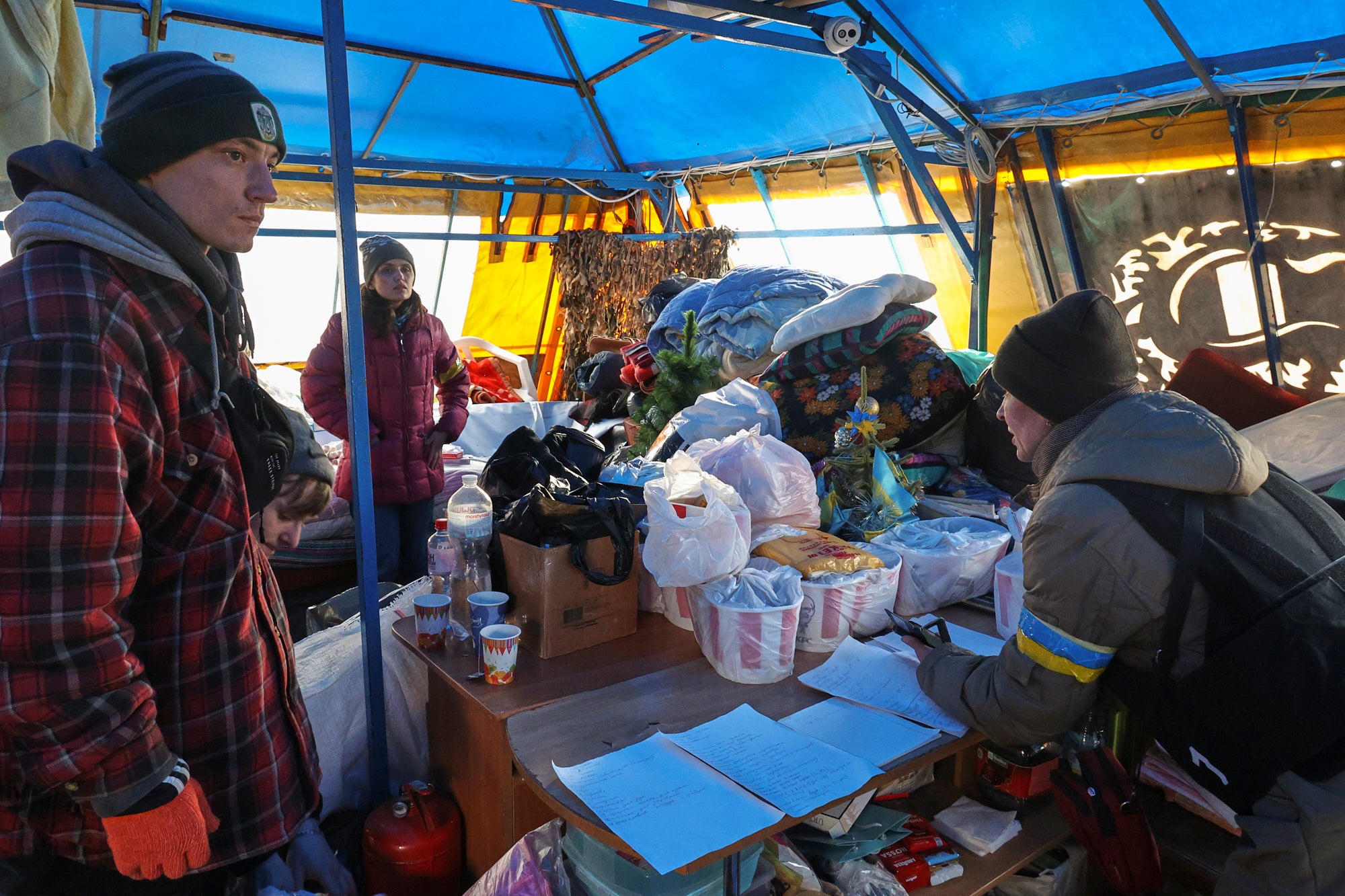
However, several major aid agencies said they had been forced to suspend their services in Ukraine or delay sending staff and aid into the country as a result of the security situation.
National NGOs and volunteers are carrying out search-and-rescue and evacuation operations and delivering essential supplies - from food and blankets to water for hospitals - where possible.
“People need mattresses, blankets, food and hygiene items immediately,” said Osnat Lubrani, UN Resident Coordinator and Humanitarian Coordinator in Ukraine.
“Our initial assessments are severely limited by the complicated security situation, but our partner organisations already operating in areas affected by the new hostilities are providing displaced families with these basic items and helping repair damaged homes and shelters,” she told The Independent from Kyiv.
The International Committee of the Red Cross (ICRC) said the intensification and spread of the conflict risk a scale of death and destruction that are “frightening to contemplate”.
The humanitarian situation is escalating by the hour
Russian rocket attacks killed dozens of people and wounded hundreds in the eastern Ukrainian city of Kharkiv on Monday, Ukraine’s interior ministry said, as ceasefire talks between Kyiv and Moscow got under way in Belarus.
UN human rights chief Michelle Bachelet said on Monday that at least 102 civilians, including seven children, had been killed in Ukraine and more than 300 injured so far, but warned that the true number will be “considerably higher”.
“People have been calling our call centre in Ukraine saying they are afraid to go to stores or far from their homes because of shelling that can happen at any time,” said ICRC spokesman Matt Morris.
“We have war wounded kits, used to treat people with burn and gunshot wounds, ready to be delivered to Kyiv’s emergency hospital. This has not been possible yet due to the insecurity and it’s very frustrating,” he added.
On Saturday, Médecins Sans Frontières (MSF) - or Doctors Without Borders - said it had made the “painful decision” to halt its activities, including HIV care in Severodonetsk, tuberculosis (TB) services in Zhytomyr, and improving healthcare access in Donetsk in eastern Ukraine - which is controlled by Russian-backed separtists.
“We will need to see over the coming period what access will be possible in a safe and impartial manner for humanitarian assistance,” MSF said in a statement.
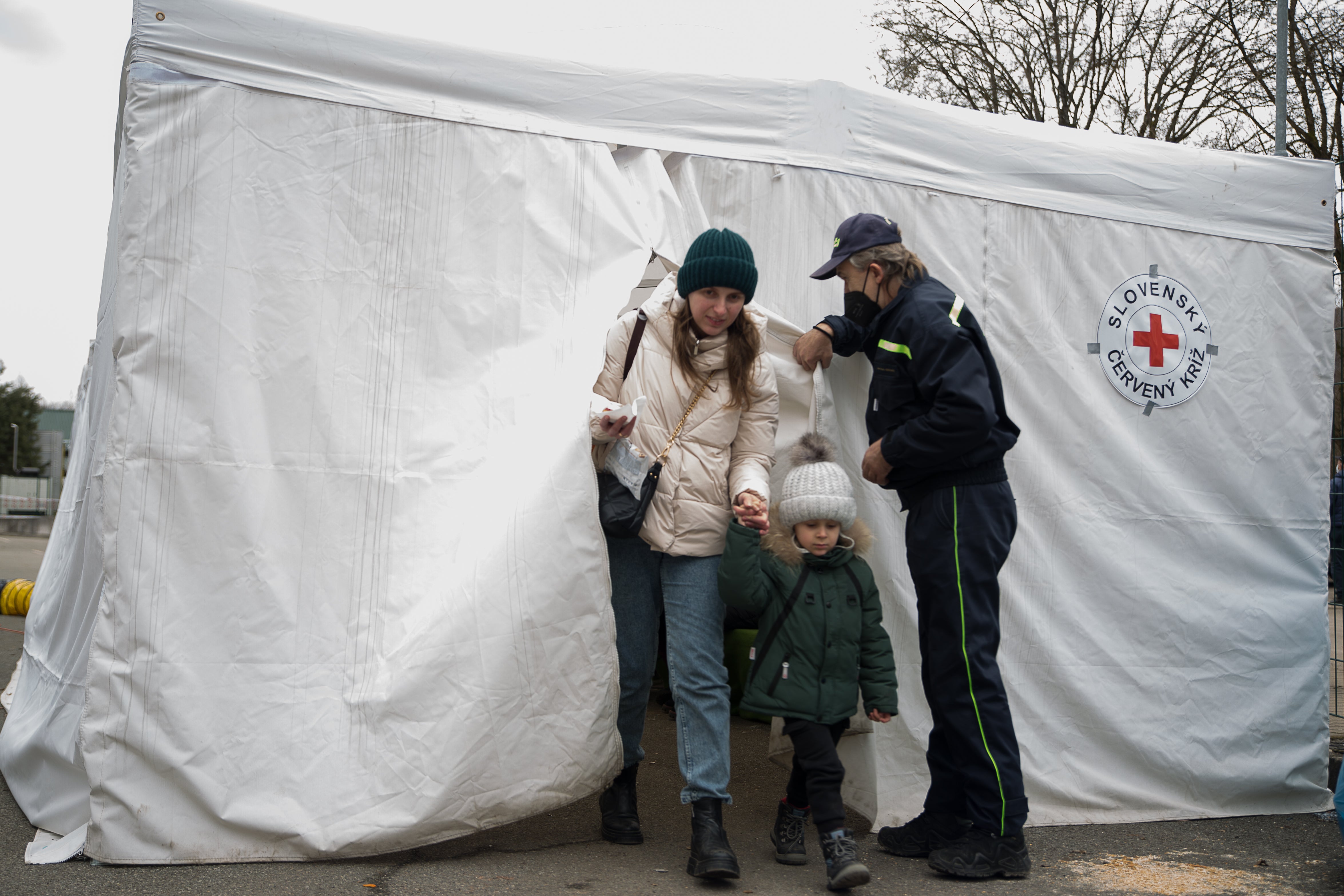
Mercy Corps said it was sending a team to Poland that would enter Ukraine - depending on the security situation and access - with the intention of providing emergency cash handouts and supporting local organisations.
“The situation is escalating by the hour,” said Craig Redmond, senior vice president of programmes at Mercy Corps.
“We are increasingly concerned that large-scale military conflict will only worsen the already dire humanitarian crisis in Ukraine and severely test the capacity of humanitarian organisations.”
In its first situation report published on Saturday, the UN Office for the Coordination of Humanitarian Affairs (UNOCHA) said 2.9 million people were already in need of aid before the invasion due to the conflict in the eastern Donbas region - which has been ongoing since 2014.
UNOCHA also flagged Ukraine’s Covid surge - new daily cases hit a record high of 45,000 as of the start of February, up from 2,000 a month earlier - and warned that the conflict could fuel the spread of coronavirus and pile more pressure on the country’s already-stretched health system.
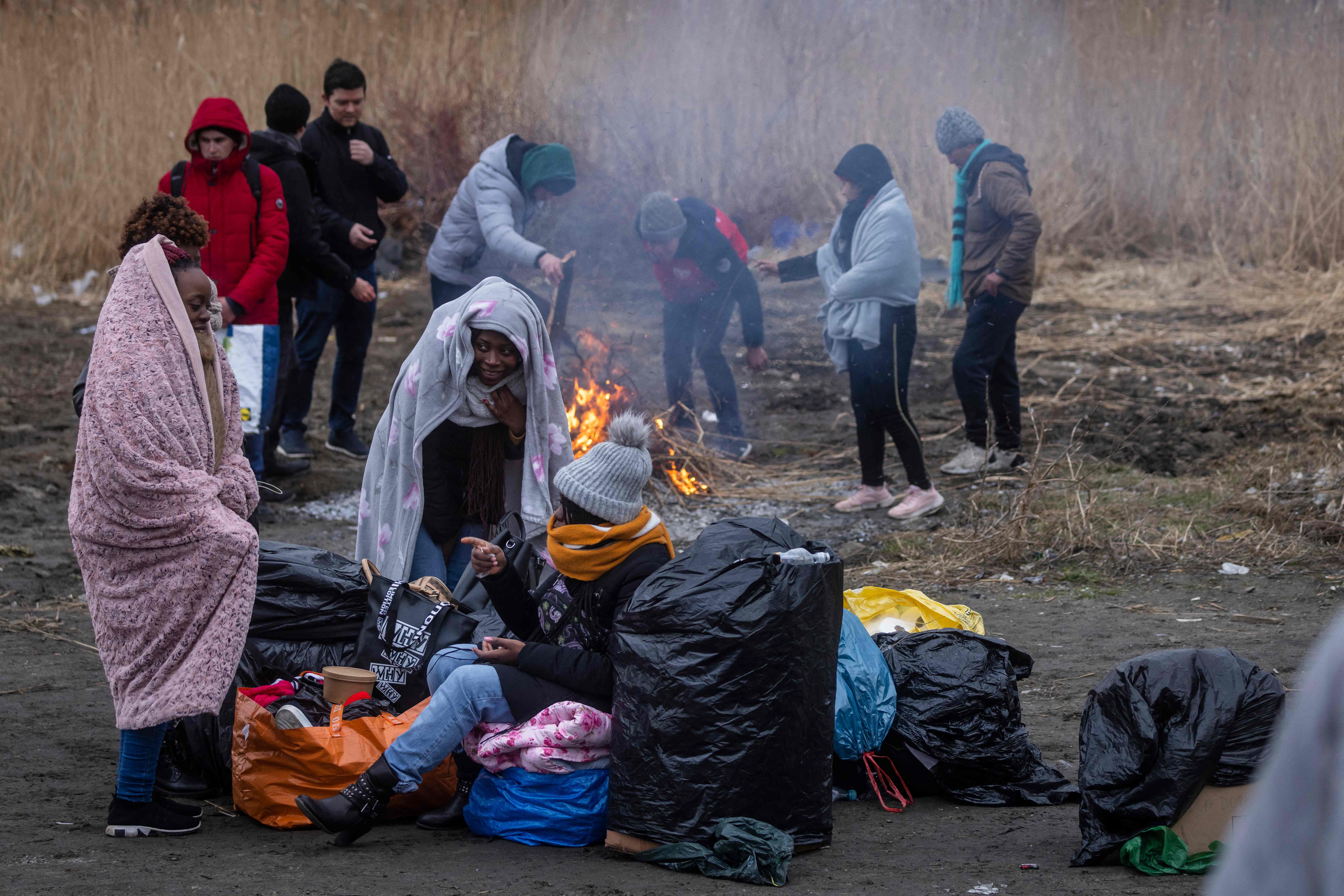
For many international NGOs, providing support is not just a question of access but also expertise.
Aid experts told social enterprise and media platform Devex that global charities operating in the country have been largely focused on long-term economic development rather than humanitarian response - and this is reflected in bilateral overseas development assistance funding for Ukraine in recent years.
Only 12 per cent of such spending on Ukraine over 2018 and 2019 went towards humanitarian issues, according to the latest available data.
Where aid agencies will feel more comfortable operating - and able to do so more freely - is in neighbouring countries including Poland, Romania and Moldova, where camps are being erected to support displaced Ukrainians.
The International Rescue Committee said it was working with the Polish government to help those crossing the border and was looking into providing cash assistance among other services.
Meanwhile, CARE International said it was concerned about displaced women and children due to the risks of sexual violence and exploitation during their journeys.
“While many civilian Ukrainian men and boys are fighting, women are being forced from their homes, families and communities,” said senior humanitarian advisor Suzy Madigan. “This makes them reliant on others for shelter, food and other basics – a dynamic which increases the risk of exploitation.”
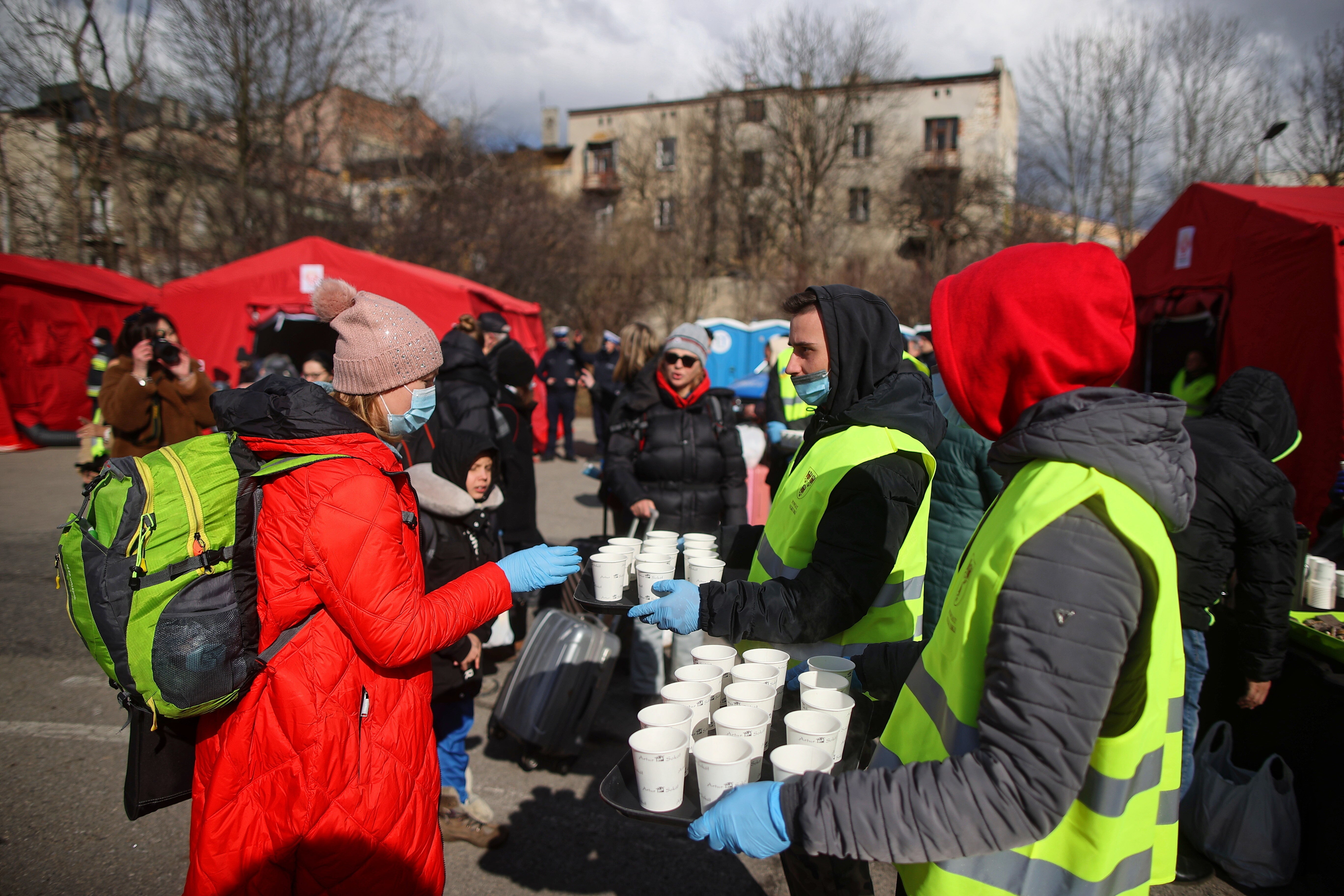
In recent days, major donors including the US and UK have each announced fresh aid pledges worth £40 million pounds respectively - while the EU vowed to disburse about £75 million.
Several major NGOs have launched funding campaigns, while the United Nations allocated nearly £15 million in emergency funding on Thursday just hours after the invasion began.
The UN’s 2022 humanitarian response plan for Ukraine - issued before the conflict - had asked for about £142 million and was less than 10 per cent funded as of last week.
A fresh funding appeal will be launched on Tuesday, and UN aid chief Martin Griffiths says that more than £745 million will be needed for aid operations in Ukraine over the next three months.
In the meantime, aid agencies are preparing to ramp up their response as soon as possible.
“We and our partners are preparing to rapidly scale up operations once the security situation allows,” said Ms Lubrani of the UN.
“And we are urging the international community to give generously so that we can provide an effective, broad and timely humanitarian response across all the affected areas.”






Join our commenting forum
Join thought-provoking conversations, follow other Independent readers and see their replies
Comments